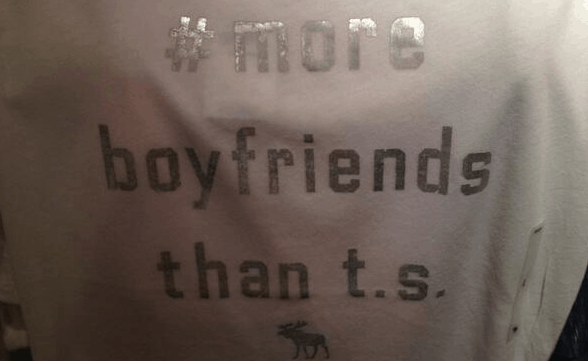Imagine God’s online “Seeking” post:
“Big divine spirit with all-present power seeks righteous humans with carved bodies worthy of Spirit’s indwelling, a creation stewardship philosophy to mind my planet, artistic skill to redeem popular culture and a witness record like St. Paul’s.”
Ridiculous? Maybe so.
But far less preposterous among earthlings. More and more we are relying on technology and the internet to figure out who to marry, and for believers, sites such as eHarmony appear to be outpacing and even replacing traditional means of romance. And the danger that comes along with that is that it is then easy for eHarmony to outpace traditional means of discerning God’s will—avenues such as hearing His still small voice, observing biblical guidelines and seeking trusted friends’ opinions.
And we know the reason why. It’s because eHarmony works.
For example, I met Jenn years ago, newly single after her husband cheated on her. Amidst her loneliness, hectic career, and the wake of betrayal, she became disillusioned with dating local men. She took a year-long leave of absence, turned to eHarmony, and invested big dollars to visit her best matches several states away. Within the year she met Jim, married him, and convinced him to move to her home city. She seems happier now.
When Jenn first told me her story, I thought, “terrific.” Computer algorithms figured out her compatibility with this guy, the internet brought them together and finally a structured communication process through the website enabled their love to ignite. Did you know that within the next sixty minutes you could observe five to seven “Jims” (or “Jenns”) through eHarmony if you filled out the forms and hit “submit”? Again, terrific.
Jenn and Jim are testimony that eHarmony works, and not just for them. Research tells us that couples brought together through eHarmony are nearly twice as likely to report their marriages as “extremely happy” relative to other couples. Who can argue with happiness? Also, over 90 percent of eHarmony marrieds rate above the national average on a well-accepted scale of marital satisfaction.
eHarmony couples get along well because the company has created a patented statistical model to match people’s life preferences and these tendencies foster compatibility. While specifics are a secret, you can bet they are using social psychological research that tells us we are attracted to and get along best, with:
• people who are similar to us, including common ethnicity, faith, income, lifestyle, and neighborhood.
• people we consider hot—but not out-of-our-league hot (that makes us nervous)—about the same hotness as we perceive ourselves to be.
• people who meet our needs for warmth, affection, kindness and sex.
• people who feel about as good about themselves as we do about ourselves, and who communicate like us too.
Add up these trends, and you can see why eHarmony is so successful: likability and compatibility can be measured.
I am all for compatibility, and if you or someone you know found love through online dating, I’m very happy for you. I don’t take any issue with people who use online dating, but I do believe that they—and all of us—should be aware of the unique challenges a relationship built on online dating may face.
The first challenge is that internet matching condenses into sixty minutes a complex process that used to take six weeks, six months, or even six years. We used to get to know our sister’s roommate’s cousin Emily after meeting at Matt’s graduation party and then piecing together her values and personality during walks in the mountains and over coffee at the mall. Not anymore. We can meet Emily online, within the hour, and presume correctly she’s like us.
Given this speed and efficiency, I wonder if we might carry the same expectation into the relationship. We might assume, incorrectly, that compatibility removes our need to listen well, fight fair, forgive often, and support through tears. Sure, technology may locate highly compatible mates like Emily or Jim, but it will certainly find fallible mates, and like everyone else on planet earth, fallible mates require grace.
My second concern is that matching technology feeds “the one” myth, or the intoxicating idea that one person in the world can make me whole and happy. As Christians, we sometimes cave to the idea that because God knows if and who we will marry, we can now use the Internet to discover that one-in-a-billion person. Once he or she is located, we will create an easy, un-bumpy relationship where our mate satisfies completely our emotional, spiritual, and physical needs. But I suggest this idea is bogus. God may know who we will marry and even give us peace about our choice, but we still choose. And eHarmony may deliver several ‘highly compatible people,’ but after we marry, we still have to work at our relationship.
In the end I’m okay with eHarmony’s twenty-nine areas of compatibility, and their patent #6,735,568 that protects the algorithm for matching Jims with Jenns. Yet I hope we can get past the science once we meet, acknowledge that relating is effortful and messy, and not expect people to measure up perfectly with their online profiles nor fulfill us one-hundred percent. Hooray for technology that brings us together; now begins the everyday challenge to show patience, talk openly, extend grace, and keep loving.





















